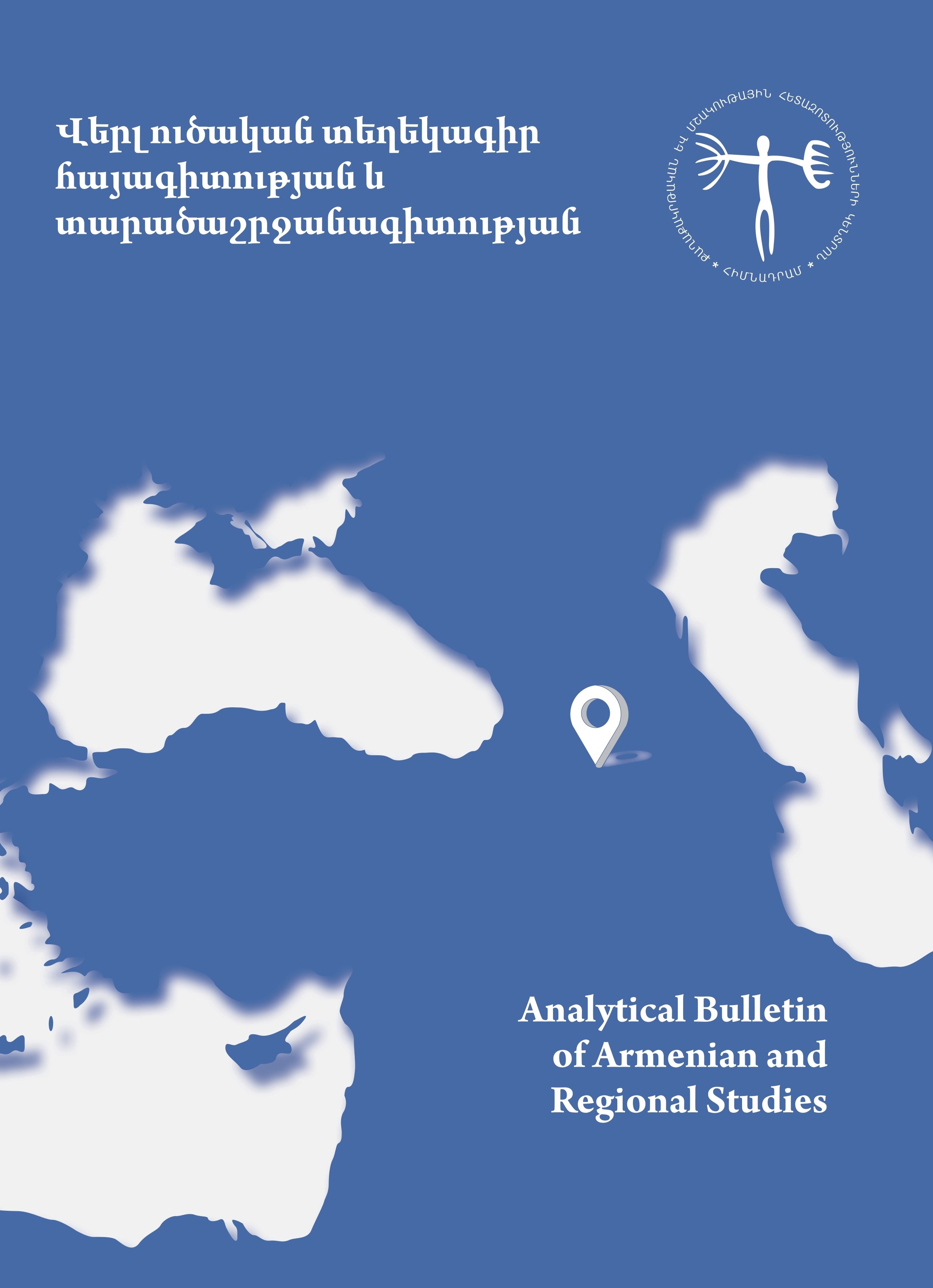TRACING THE HEIRS OF WWI ARMENIAN PRISONERS IN THE AUSTRO-HUNGARIAN EMPIRE
Keywords:
First World War, concentration camps, POW (prisoner of war), racial survey, personal memory, family memory, social memoryAbstract
In 2014, a huge variety of archival materials related covering First World War prisoners were found in Austria. It was discovered that Austrian anthropologist Rudolf Pöch conducted a large-scale racial survey across ten different POW camps of the Austro-Hungarian monarchy from 1915-1917. During these campaigns, around 5,000 men were anthropometrically assessed, photographed, plaster-casted, and additionally documented with phonogram and film samples. Among those prisoners, there were 191 Armenians, and there is little to no information known about them. Furthermore, there are no personal, familial, and social memory-related surveys about the Armenian prisoners. Although many oral histories were collected throughout the fieldwork process, it was discovered that World War I imprisonment memory was considered as too small of an episode as it is "covered" by memories of recent and more actual events, such as the memory of the Armenian Genocide, Stalin era repressions, and the Second World War.
References
Connerton P., How Societies Remember, Cambridge University Press, 2006.
Guy Beiner (Ben-Gurion University of the Negev, Israel), In Anticipation of a Post-Memory Boom Syndrome, Cultural Analysis, Volume 7, 2008 (http://socrates.berkeley.edu/~caforum/volume7 /vol7_discuss1.html).
Kharatyan H., Shagoyan G., Marutyan H., Abrahamyan L. Stalin Era Repressions in Armenia: History, Memory, Everday Life, Yerevan, 2015.
The Unknown Armenian Prisoners of War in Habsburg Austria, 1915-1917: The Anthropological Studies of Rudolf Pöch (project description), http://www.uni-salzburg.at/index.php?id=205987&L=0, 05.12.2016.
Хальбвакс M. Социальные рамки памяти / Пер. с фр. и вступ. статья С.Н. Зенкина. –М.: Новое издательство, 2007.





